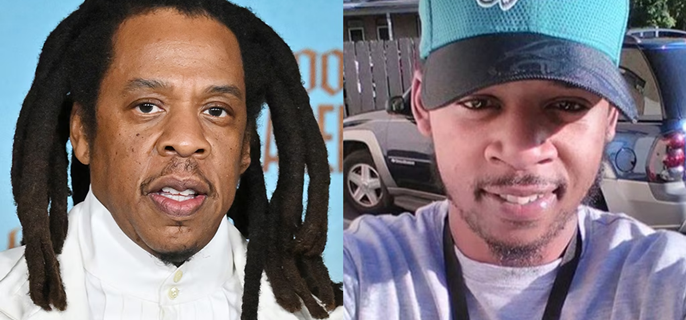Jay-Z is officially closing a chapter in his life's storybook. Three months after Rymir Satterthwaite, the man who claimed the "Empire State of Mind" rapper as his biological father, dropped his federal lawsuit against Jay-Z, his former legal guardian Lillie Coley's case was dismissed by the Central District of California Court on November 4th.
In the latest legal battle, Coley—who assumed guardianship over Satterthwaite in 2011 following his mother Wanda Satterthwaite's terminal illness—had filed a lawsuit against the Roc Nation founder (real name Shawn Carter) for compensatory damages and restitution in May. She claimed that Jay-Z had intentionally inflicted emotional distress and committed fraud amid the fallout of past dismissals.

Among the allegations, Coley—who continued Wanda's June 2010 lawsuit on behalf of Satterthwaite in New Jersey before it was dismissed in August 2012 on the grounds that it was filed in the wrong state—accused Jay-Z of suppressing evidence, sealing records, "negligently" concealing and misrepresenting "material facts concerning his minimum contacts with the State of New Jersey."
Following a back-and-forth of motions to dismiss and amend in September, the judge sided with the "99 Problems" rapper, who was accused of fathering Satterthwaite with the late Wanda Satterthwaite, in the November 4th ruling. "The Court has read and considered the Motion and concluded that it is suitable for decision without oral argument," the order ruling the motion obtained by E! News—in which Coley was named plaintiff—concluded. "The Court GRANTS the Motion and DISMISSES the Complaint without leave to amend."
With the court's decision, Coley will not be able to refile her cases against the rap mogul. Satterthwaite withdrew his federal paternity lawsuit against Jay-Z with prejudice in July, meaning he can't refile either.
Judge Sherilyn Peace Garnett noted in the order dismissing Coley's case that the court agrees that the case can be dismissed pursuant to California's anti-SLAPP statute. The law is meant to "allow early dismissal of meritless First Amendment cases aimed at chilling expression through costly, time-consuming litigation," per the order. Defendants can file a "special motion to strike" a suit arising from conduct within free speech, including "any written or oral statement or writing made before a judicial proceeding" or "made in connection with an issue under consideration or review by a judicial body."
In this case, the "99 Problems" rapper—who shares kids Blue Ivy Carter, 13, and twins Rumi and Sir, 8, with wife Beyoncé—argued that Coley's "claims arise from a protected act because each and every one" was based on court orders or the Roc Nation founder's "statements and writings made in prior civil litigation." Judge Garnett added, "The Court agrees."
The doc noted that since Coley's assertions are "premised on written and oral statements made during litigation, as well as conduct in furtherance of these statements, they fall within the protections of the anti-SLAPP statute." Judge Garnett wrote that although Coley provided "detailed responses to most of the legal arguments raised in the Motion," she did not "specifically address the anti-SLAPP motion."
While Coley initially filed to appeal the decision on November 5th, she had decided to withdraw the following day, per documents obtained by E!. Jay-Z has vehemently denied that he is Satterthwaite's father, with his attorneys writing in a July court filing obtained by E! slamming the claims made by Satterthwaite's filing. "The fabricated allegations and claims have been addressed—and rejected—in multiple other courts," the documents read, adding that Satterthwaite's federal lawsuit was "just the latest" in what his legal team described as "decadeslong harassment."

